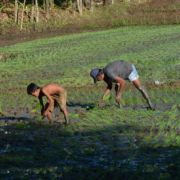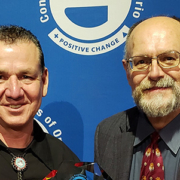Integrating Human Rights in Climate Action
The United Nations Paris Agreement states that signatories (also referred to as “Parties” to the agreement) should “respect, promote and consider their respective obligations on human rights” and to integrate these into their climate actions. The agreement “sets long-term goals to guide all nations to substantially reduce greenhouse gas emissions to limit the global temperature increase in this century.” Since 2020, Parties must outline their long-term goals and climate actions through “Nationally Determined Contributions” or NDCs.
In November 2022, the Centre for International Environmental Law and the UN Office of the High Commissioner for Human Rights released a toolkit to guide Parties on how to integrate human rights in NDCs. The toolkit, “Integrating Human Rights in Nationally Determined Contributions (NDCs)”, centers public participation and domestic planning processes in formulating NDCs and integrating human rights obligations of Parties into “the implementation, monitoring, and evaluation of the NDC.” The toolkit consists of seven sections. Section 5 of the toolkit (pp. 23-27) sets out three recommendations that address integrating the rights and traditional knowledge of Indigenous peoples in NDCs:
- Recommendation 5.1 Integrate obligations articulated by UNDRIP in the preparation and implementation of the NDC.
- Recommendation 5.2 Respect the free, prior, and informed consent of Indigenous Peoples.
- Recommendation 5.3 Integrate and respect traditional knowledge in the preparation and implementation of the NDC.
The section also provides reflection questions for Parties to consider throughout the process of including Indigenous peoples in the further development of climate adaptation and mitigation policies.
By Leela Viswanathan
(Image credit: Dan Meyers, Unsplash)


 Beth MacDonald
Beth MacDonald






 Benjamin Voros
Benjamin Voros